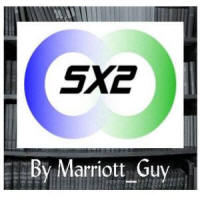
| The Perfect Storm |
For nearly two generations, the console world has been dominated by the big three - Nintendo, Sony and Microsoft. All have produced fine systems in their own right, introducing new technology and innovations to our gaming universe. That being said, the availability of viable alternatives has been virtually nonexistent for the past decade. Outside of a few niche systems (XaviXPORT, et. al.), the Big Three have reaped the benefits of conducting business within a pseudo monopolistic environment. If history truly repeats itself, this technological bottleneck may be nearing the end of its cycle.
| | |
Throughout the video gaming era, console wars tend to erupt when a significant breakthrough occurs in a complimentary industry. Whether it is the development of a new microprocessor or the introduction of an enhanced media format, competition increases as manufacturers look to capitalize on emerging technologies. Many of these ventures have been less than successful, but every now and again a new face can rise to prominence. Microsoft and Sony are prime examples of this. Current advancements in autostereoscopy (3D display without use of peripherals) and motion/voice controlled interaction may provide the requisite window of opportunity for the next video gaming juggernaut. For any company to take advantage of this potential opening, a perfect storm must occur with the convergence of the following attributes: Financial Wherewithal, Technological Expertise, Brand Recognition and Visionary Leadership. Financial Wherewithal |
Needless to say, entry into the video game hardware market is an extremely expensive endeavor. In addition to the assumed R&D, marketing, manufacturing, and associated overhead expense of producing a new system (which in and of itself is staggering), any prospective company must be able to withstand significant losses during the initial product launch and those incurred throughout its developmental phase. Such investment necessitates a long term fiscal commitment, coupled with the experience to successfully develop/execute the base economic model.
| Technological Expertise |
The ability to take advantage of existing in-house resources is almost a necessity. Companies able to redeploy andor repurpose established assets gain significant financial flexibility due to lowered expenses in those synergistic areas. The core competencies of an organization must not only be complimentary in nature, but be realized directly within the hardware of any prospective new system.
| Brand Recognition |
This past decade has been economically challenging to say the least. The general public is discerning as ever regarding discretionary purchases. Price will always play a significant role in these buying decisions, but trust in the brand has become equally, if not more, important. This would be especially true for a new product entry in a market not normally associated with said company. Consumers, along with shareholders, need to have confidence in a corporation prior to supporting any new venture, especially one that might be viewed as risky.
| Visionary Leadership |
Obviously, this is an absolute necessity for any entity to be successful. The ability to not only anticipate, but more importantly to meet, the long-term demand of the consumer is critical in maintaining/obtaining superiority over the competition. The leadership team must have excellent foresight, but also the mettle to follow through and effectively sell their vision to all vested parties.
|
The following lists a few companies, all of which have varied historical ties to the video game console industry, which fit this speculative profile. | | | 
|
This giant is no stranger to the video game market. In addition to releasing their moderately successful CD-i line of consoles during the 1990s, Philips was the official distributor and manufacturer of the Magnavox Odyssey 2 video game system in Europe (VideoPac). Philips has long been an innovator within the electronics industry, creating the Laser Disc format and then subsequently developing, in conjunction with Sony and others, the optical disc formats we enjoy today (CD, DVD, Blu-ray). Their portfolio is extremely diversified, with almost 45% of total annual sales derived from their Healthcare division, which in fact specializes in Imaging Systems and Devices (potential 3D gaming applications).
| | | 
|
Another industry behemoth, Toshiba has long been a leader in the manufacturing and development of electronic devices and systems. They have been known to invest in emerging technologies, such as the NUON and their patented HD-DVD disc format. Their purchase of Westinghouse Electric Company, one of the world’s largest producers of nuclear energy, in 2006 is a prime example of their visionary culture. They are currently at the forefront of 3D-TV evolution, unveiling the first peripheral-free sets this past October, 2010.
| | |  |
If there is one company that truly excels in building, and maintaining, consumer loyalty, look no further than Apple, Inc. Since their inception in 1976, Apple has continually introduced new products that challenge the traditional offerings of its competitors. This sprit of change, coupled with excellent manufacturing, marketing and support, has garnered them an extremely devoted customer base. Though their last venture into the video game market was disastrous (the Pippin, licensed to Bandai), this company is not afraid to step outside the proverbial box.
| | | 
|
The entertainment world has changed considerably over the past decade. Video games are no longer the red headed step child of their box office counterpart(s) - they are now partners. Continued advancements in CGI (computer-generated imagery) and further integration within each medium provides excellent leveraging opportunities. Time Warner’s diversified portfolio provides them the ability to maximize the productivity of existing, internal resources. Let's not forget that Warner also has a little history in the video game hardware market - they owned Atari from 1976-1984.
| | | 
|
Yes, this is the dark horse, sentimental entry in this company list. After a successful run throughout the 1980s and 1990s, Sega bowed out of the console war after their release of the Dreamcast system in 1999 due to significant company debt. They have since rebounded as a third party, multi-platform software distributor. Rumors of a new, propriety handheld system have recently surfaced, resulting in a flurry of internet chatter as to the possibility of Sega reentering the hardware arena.
| |
The above list is purely theoretical in nature. Research was conducted in compiling the prospective candidates, but by no means should this be viewed as anything but an educated conjecture. In all honesty, as market conditions change, successful companies have the ability to adapt and shift focus to meet consumer demand and maintain profitability. For all we know, the next juggernaut console may be named one of the following:   

OK, I grant you that last entry (SX2) might be a bit of a stretch. But the truth is, the next household name may come from a complete unknown, as has been demonstrated in the past. At the end of the day, new competition only enhances our video gaming experience and advances technology. In today's age, a true perfect storm must occur for this to happen. Who will surprise us?
| | Outside of the Big Three, who do you think
could potentially be the next hardware giant? | | |
Recent Entries RFG Dev Log #2 (3/18/2025)
A Quick Update (3/3/2025)
Game Room Project - Feb 2025 - The Arcade Cabinet (2/11/2025)
My Video Game S.O.A.P. Principle (2/11/2025)
SmileBASIC 4 (2/8/2025)
|
I would say Sega would probably have the best chance for success, considering that they were a major player at one time.
I am surprised that Apple has not tried to come up with something that would blow the video game market out of the sky. They deffinately have the ability to do it.
That being said I would love to see someone come out of nowhere and push the video game market into the next generation.
| |
I don't think that gaming is something that Apple wants to get in to. The way I see it, they're trying to get out of the computer market and in to a home Internet appliance. That's where I see OS X heading with Lion. Their iOS has taken over in Apple TV, iPod, iPhone, iPad, and is now starting to show in OS X.
I'd probably agree with Sega with the options you laid out because they do have experience and their hardware track record definitely goes along with pushing the envelope.
I'd also put HP out there. They have stuck with their all in one touchscreen PC for a while, but their recent purchase of Palm (and the WebOS) could give them a solid base for a home console. Many people really loved the WebOS, but it was from Palm, so it never really went mainstream. Couple that with their small form factor PCs which, with an Atom/Tegra chipset, could do some pretty good graphics for a low power device. They should have some great access to chip manufacturers, so a powerful chipset could give a set top box a solid boost.
If you look at the major shifts in gaming manufacturers, they came because of a great innovation. Atari had solid games coming from a great arcade background. Nintendo had quality control, great graphics, and fantastic games. The Genesis began to push the hardware envelope, SNES responded. PlayStation then came in with a graphical improvement and cheaper games ($40-50 compared to $60-70+). PlayStation 2 was unstoppable, but Microsoft got their foot in by bringing the best online capabilities to consoles. Then the Wii brought the next major shift with their controller. The next generation will certainly be interesting because I can't even imagine where the next innovation will come from. But I'm sure someone is working on it, regardless of who it is, and if it's someone new, they certainly could become the next big player.
| |
HP is an excellent call!
| |
I would like to see Sega make a comeback
| |
Very deep discussion here, but speculation is always fun. Here is what I think could make it:
Apple. The new Apple TV is the perfect vehicle for an OnLive style streaming game app. Heck, you could just create a free app for Ipod, Iphone, and IPad to be a controller if you already have one.
Matsushita/Panasonic. The only thing I see them lacking is the visionary leader, but you never know when one will pop up through the ranks.
Nvidia. Who knows the game graphics business better? All they lack is first party support, and this is where Sega would make an excellent acquisition.
| |
I dont have much to contribute to the converstation or speculation. Just wanted to say this was a fantastic read. Thanks Terry!
| |
Apple? I imagine the system would be sexy as all get out, but would have the functionality of... well, the Pippin I imagine. But, considering the sheer size of the Apple Cult...
I think we could likely expect something from Madcatz soon, and the Sony, Microsoft, and Nintendo would make crappy third-party controllers for it. Or maybe Gamestop would make one and all the games would be used and cartridge based, that way they can bring back the cleaners.
| |
Excellent article!
I think even more important than being a "known" name is the price point. If a company has a well laid plan and can get enough backing from investors they could break into the market. Though i think even the 3 consoles has it stretched thin as is. Many people own multiple consoles and quite a few buy games for multiple systems.
The money isn't in the hardware the money is in software/peripherals. As it is every one of the big 3 takes losses on their systems (i know at least at launch i am unsure of continued production/development costs for example Slim consoles). I would assume Sony and MS still take a loss on their consoles since there have been dozens of minor changes and upgrades to them over the years. Nintendo to my knowledge hasn't changed much under the hood so production costs should have plummeted over the last several years.
I wouldn't be surprised to see Sega try to make a comeback after taking some time to get things figured out. I don't think handheld market would be in their best interest though. Sega Handhelds were terrible before and Nintendo controls way to much of the market. I do think if Sega was to announce a new system it could put the final nail in their coffin. Would Nintendo/Sony/MS still want them making games for their consoles?(Would the big 3 even have any say in the matter? I am unsure of how this works) And would they still make games for big3 consoles or solely support their system?
I could see someone like Motorola/IBM/ATI/nVida getting into it but only because they have been in the gaming market for literally decades.
Though i think Motorola moved into handhelds exclusively after cart systems disappeared. Again i could be wrong.
Imagine if IBM decided to brand their own home consoles? What then happens when they stop working on chips for the big 3 and invest all that time/effort/money that was going into 3 different chips into one just for themselves? What then happens to the big 3 when they have to go shopping to find someone else?
I think the big 3 a hear to stay until either
1. the gaming market fails from corporate avarice
2. customers get fed up with astronomical hardware/peripheral failures
3. Someone like IBM who is instrumental in the creation of all hardware on the market decides they want their own piece of the pie.
| |
@Izret101: Nintendo was reportedly making money on every Wii since launch, so it's been printing money since day 1.
Apple is being brought up by a bunch of people for various things including purchasing Sony. If Apple gets in to gaming, that's the only way. Steve Jobs has gone from having a fairly open system to locking down everything so Apple is in complete control of your device. I just think that Apple is trying to shift from the home to everything mobile. They have now discontinued their server products, but you can run the OS on a Mac Mini or Mac Pro. They have fewer and fewer models of desktops with increasing numbers of laptop, mobile, and cloud devices. It just doesn't make sense in my eyes for Steve Jobs to jump in to a market like that. The Pippin came out during the time that Jobs wasn't with Apple.
| |
Very interesting article. I highly, highly doubt Sega would jump back into the hardware market, especially the handheld market. Nintendo has nearly complete control over it, and even Sony has managed to grab only a small share of the market. Sega is doing well selling software, with no worry about hardware development. I think that Sega will keep out, at least for the time being.
I agree with Izret's point that the Big 3 have stretched the market thin. Discretionary income is definitely low due to the recession, and the Big 3 are doing their best to grab all of it. I'm not sure there is room for another competitor to come in. Unless they have a game changing plan, I think we'll be seeing the Big 3 for a long time to come.
| |
Interesting topic and food for thought. I don't think we'll be seeing a new competitor in the video game system hardware sector soon though. Then again, what is OnLive??  Already proved myself wrong, I guess. Already proved myself wrong, I guess.
I could write a lot of things but what it basically boils down to is that starting up a video game system costs a ton of money, probably around a $1 Billion investment, which is something only the very biggest companies can afford. Developing games has become a hugely costly affair as well. The times of 5 guys working on a game in their garage are long, long gone. Also consider a lot of companies have NO ties to video game developers/studios. Having studios that develop exclusively for your platform is crucial, otherwise why would people even consider buying your platform?
| |
Matrox could make something. They used to be a very good video card company with reasonable prices. They tend to find specialized markets. Maybe with the advancement of the video game industry, there will be a type of new system like in 3d, in immersion or something like that that they will be the first to produce. It's unlikely, but I loved this company so I vote for them. YAY!
|
|
Login or register to comment
|
|
It appears as though you are not a member of our site, or are not logged in.
|
It appears as though you can not comment currently. Becoming able to comment though is easy! All you need to do is register for the site! Not only will you be able to access any other site features including the forum and collection tools. If you are a registered user and just need to login then you can do so here.
Comment! It's easy, thoughtful, and who knows you might just enjoy it!
|
|
|



